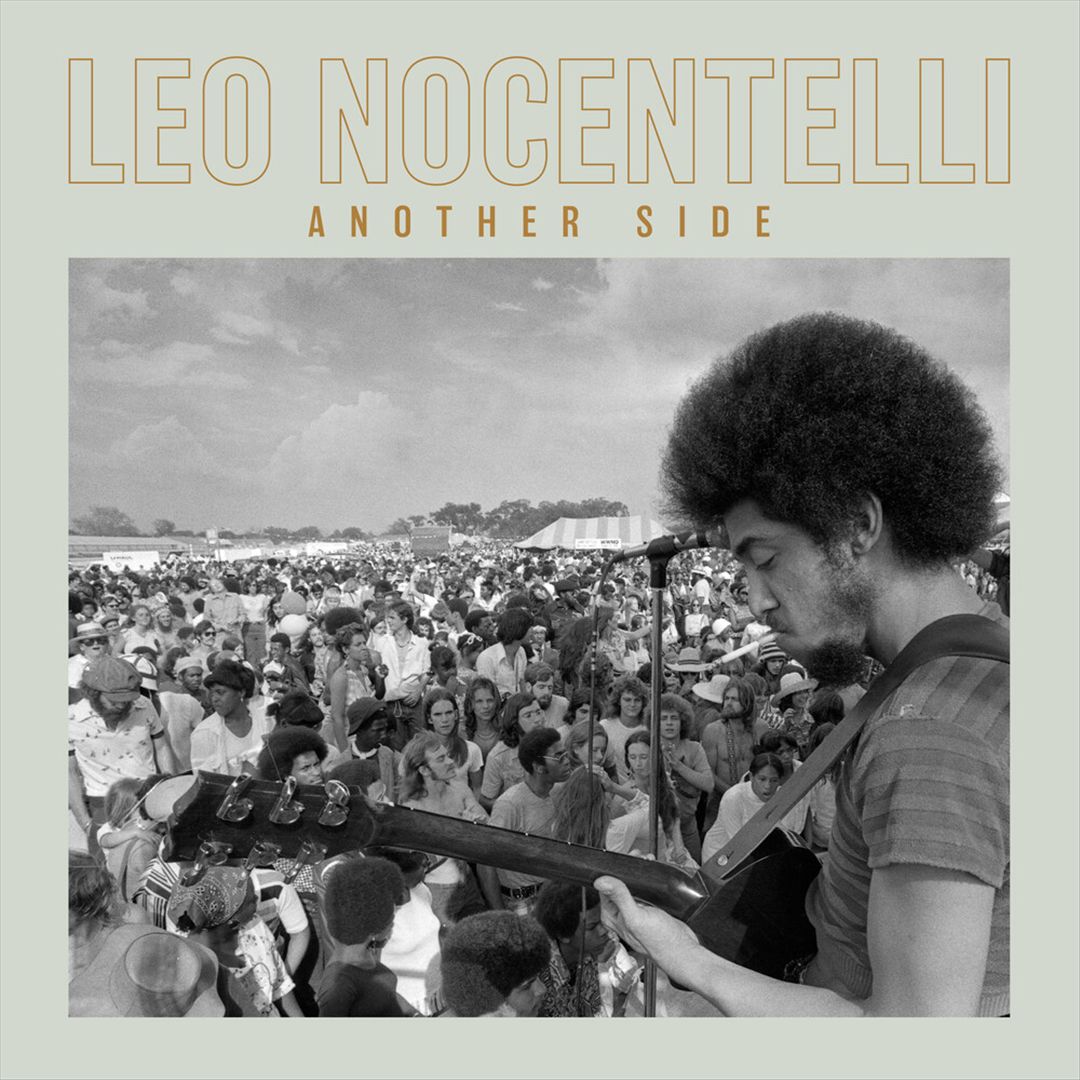UPC: 826853019118
Format: LP
Regular price
$34.95
Regular price
Sale price
$34.95
Unit price
per
Couldn't load pickup availability
FREE SHIPPING
This item is expected to ship between 3 and 6 business days after order placement.

Another Side is Meters' guitarist Leo Nocentelli's previously unissued debut solo album from 1971 with a backstory that threatens to overshadow the music. While the Meters were on hiatus, Nocentelli, armed with a basket of original songs, holed up in Cosimo Matassa's Jazz City Studio in New Orleans, with Meters' bassist George Porter, Jr., drummer Zigaboo Modeliste, and producer /pianist Allen Toussaint (jazz great James Black played drums on several cuts, too). Before these full production demos could be released, the Meters signed with Warner Bros. and the tapes were shelved at Toussaint's Sea-Saint studio facility and forgotten. When Hurricane Katrina drowned NOLA in 2005, Nocentelli assumed the tapes lost. However, 16 boxes of tape -- a quarter of the studio's vault -- had survived. They were bought by an entrepreneur and stored in Los Angeles, and auctioned in 2018 at a swap meet in Torrance, California where collector and DJ Mike Nishita (Money Mark's brother) purchased them.
Nocentelli's approach couldn't be further from the Meters. Deeply inspired by James Taylor's Sweet Baby James, he wrote a singer/songwriter album drenched in folk, acoustic soul, blues, and roots rock. Opener "Thinking of the Day" is simpatico with the music of Terry Callier, with its soulful reflection on frustration and stasis amid fingerpicked acoustic guitars, rolling bass, and drums. One can hear Bill Withers' influence on the spidery, low-key, folksy funk of "Riverfront," driven by Toussaint's Wurlitzer piano. "Pretty Mittie" is a folk-blues that sounds like Nocentelli had been listening to Taj Mahal's Giant Step/De Ole Folks at Home. The tender "I Want to Cry" and "Getting Nowhere" are rife with Taylor's songwriting influence. In the philosophical "Tell Me Why," the guitar sounds and stacked vocal harmonies readily reflect influence from Laurel Canyon and Crosby Still & Nash''s self-titled debut album. These comparisons are contextual; Nocentelli wasn't merely emulating his peers, but reflecting the era's influence -- this is the man who wrote "Cissy Strut" after all -- as Another Side carries a loose, individual narrative line about a restless, working-class, broken-hearted young man. In "Til I Get There," the rhythm section takes a simple, rootsy country melody then adds heft and depth while Nocentelli registers sharp, melodic fills behind his sung vocal lines. He solos with verve, inextricably binding country and R&B. His vocal on the folk-soul of "You've Become a Habit" makes use of a heretofore unknown yet expertly expressive falsetto. "Your Song" is big on bouncy backbeat shuffle, a sterling example of Toussaint's production style with Porter's bumping bassline driving the rhythm with a breezy NOLA groove. Another Side is a true musical holy grail. Forgotten for decades by its creator, it opens a wide window on a previously undiscovered dimension of Nocentelli's musical persona and registers what might have been had he sought to release it. This wonderful set is an intimate, left-field chapter in the story of the world's most influential funk guitarist. ~ Thom Jurek
Nocentelli's approach couldn't be further from the Meters. Deeply inspired by James Taylor's Sweet Baby James, he wrote a singer/songwriter album drenched in folk, acoustic soul, blues, and roots rock. Opener "Thinking of the Day" is simpatico with the music of Terry Callier, with its soulful reflection on frustration and stasis amid fingerpicked acoustic guitars, rolling bass, and drums. One can hear Bill Withers' influence on the spidery, low-key, folksy funk of "Riverfront," driven by Toussaint's Wurlitzer piano. "Pretty Mittie" is a folk-blues that sounds like Nocentelli had been listening to Taj Mahal's Giant Step/De Ole Folks at Home. The tender "I Want to Cry" and "Getting Nowhere" are rife with Taylor's songwriting influence. In the philosophical "Tell Me Why," the guitar sounds and stacked vocal harmonies readily reflect influence from Laurel Canyon and Crosby Still & Nash''s self-titled debut album. These comparisons are contextual; Nocentelli wasn't merely emulating his peers, but reflecting the era's influence -- this is the man who wrote "Cissy Strut" after all -- as Another Side carries a loose, individual narrative line about a restless, working-class, broken-hearted young man. In "Til I Get There," the rhythm section takes a simple, rootsy country melody then adds heft and depth while Nocentelli registers sharp, melodic fills behind his sung vocal lines. He solos with verve, inextricably binding country and R&B. His vocal on the folk-soul of "You've Become a Habit" makes use of a heretofore unknown yet expertly expressive falsetto. "Your Song" is big on bouncy backbeat shuffle, a sterling example of Toussaint's production style with Porter's bumping bassline driving the rhythm with a breezy NOLA groove. Another Side is a true musical holy grail. Forgotten for decades by its creator, it opens a wide window on a previously undiscovered dimension of Nocentelli's musical persona and registers what might have been had he sought to release it. This wonderful set is an intimate, left-field chapter in the story of the world's most influential funk guitarist. ~ Thom Jurek

